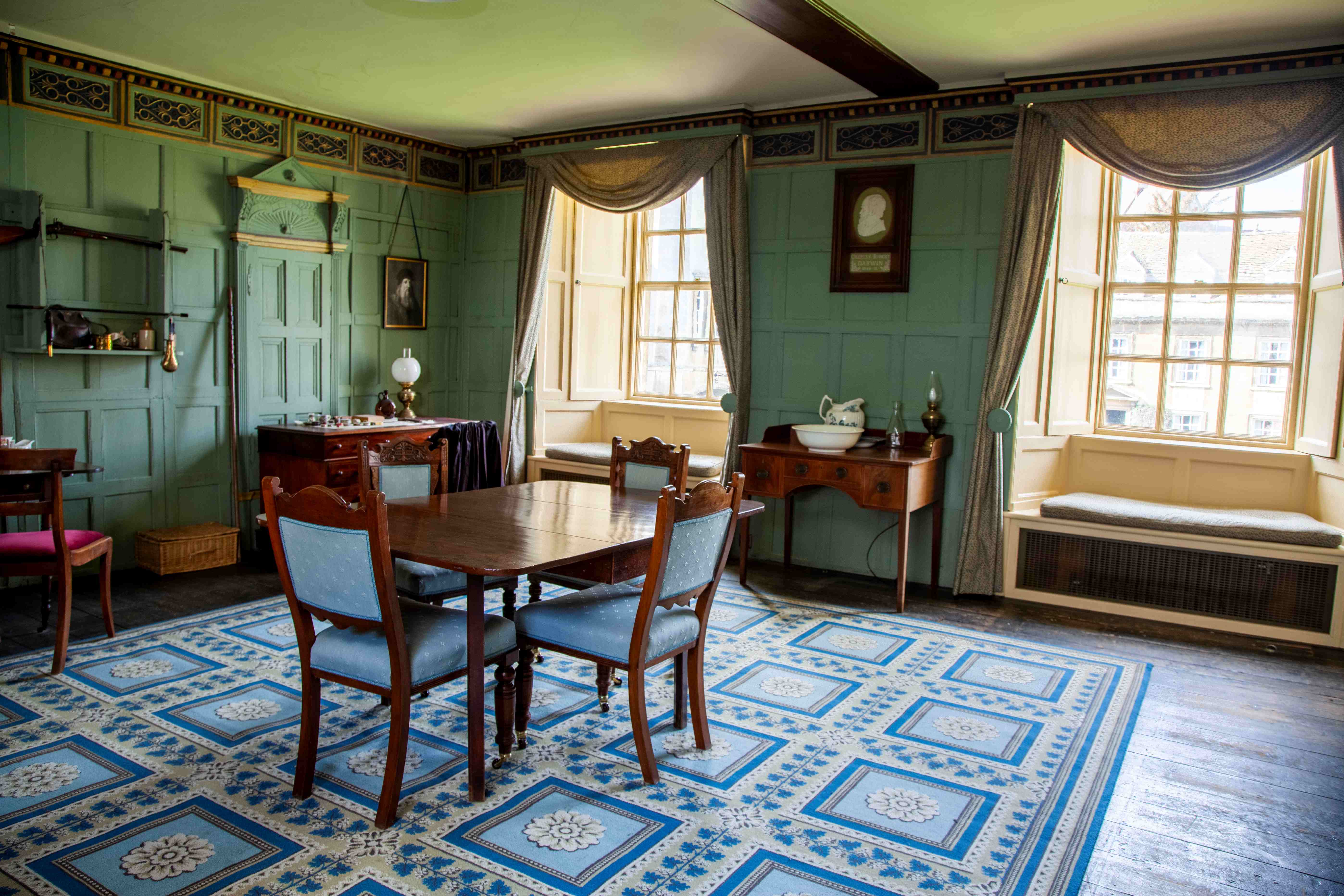12 February 1809
Charles Darwin is born at The Mount, Shrewsbury, the fifth child of Robert Waring Darwin, physician, and Susannah Wedgwood.
1817
Darwin's mother dies; his 3 older sisters take on maternal responsibilities. Darwin starts at Unitarian day school.
1818-25
Darwin attends Shrewsbury School as a boarder. He hates the school, describing it as "narrow and classical".
1825
Darwin is removed from school, being deemed unsuccessful, and spends the summer accompanying his father on his doctor's rounds. That autumn, he is sent to Edinburgh University, with his brother Erasmus, to study medicine.
1826
Darwin joins the Plinian Society in Edinburgh. It is around this time that Darwin meets his most influential mentor at Edinburgh, Robert Grant.
1827
Abhorred by medicine, Darwin leaves Edinburgh without taking a degree. Darwin's father, anxious that he does not become idle, insists that Darwin take up clerical studies in Cambridge.
January 1828
After spending some time brushing up on his forgotten Greek, Darwin enters Christ's College, Cambridge.

January 1831
Darwin sits his BA exam, and is astonished to be ranked 10th out of 178 candidates.
27 December 1831
Darwin finally sets sail on the Beagle.
29 October 1836
Darwin meets the geologist Charles Lyell for the first time.
4 January 1837
Darwin reads his first scientific paper "Observations...on the coast of Chile" at the Geological Society in London.
May 1839
The Beagle journal is published under the title Journals and Remarks, volume three of Darwin's Narrative of the voyage.
May 1837
Darwin moves from Cambridge to 36, Great Marlborough Street, London.
March 1838
Darwin is elected to the Athenaeum...
1839
... and then to the Royal Society...
1840
... and then to the Council of the Royal Geographical Society.
January 1839
Darwin marries Emma Wedgwood, his first cousin. Their first child, William Erasmus, is born on 27 December.
1841
The Structure and distribution of Coral Reefs is published.
1842
Darwin writes a 35 page sketch of evolutionary theory.
1842
Darwin and his young family move to Down House.
1843-4
Darwin writes Volcanic Islands.
1844
Buoyed by Joseph Dalton Hooker’s response to his earlier drafts of evolutionary theory, Darwin finishes a 231 page manuscript.
In the same year, Robert Chambers publishes Vestiges of the Natural History of Creation, a popularisation of evolution theory. This is not well received.
1846
Darwin finishes his last book describing the Beagle voyages: Geological Observations on South America.
1851
Darwin's eldest daughter Anne dies.
Darwin's first of two volumes on stalked barnacles is published. This overhauls the entire subclass of fossil and living Cirripedia.
1853
The Royal Society award Darwin their Royal Medal for his work on barnacles.
1854
Darwin is elected to the Royal Society's Philosophical Club, and to the Linnean Society.
1855
Darwin conducts experiments to prove that seeds, plants and animals could reach oceanic islands, where they might produce new species in geographic isolation.
April 1856
Darwin invites Huxley and other naturalists to a weekend party, where they discuss his ideas on the origin of species. After the meeting, he begins writing for publication, encouraged by Lyell, who feared that others might publish the same work before him.
1st July 1858
After correspondence with Wallace (who had come up with a seemingly identical theory), and advised by Hooker and Lyell, extracts from Darwin's work and a paper by Wallace are presented at the Linnean Society. This work is later published as ''On the tendency of species to form varieties' in the Journal of the Proceedings of the Linnean Society (Zoology). Events move so fast, that Wallace is not notified of the joint presentation until afterwards, but responds courteously.
1859
Darwin now moves quickly. He writes a book, stripped of academic references and aimed at the reading public, called On the Origin of Species. The 1250 print run of 1859 is oversubscribed, and Darwin starts corrections for a second edition. The book’s cause is championed by Huxley, who is confrontational, and somewhat polarised the debate. Darwin backs him nonetheless, excusing himself from combat because of illness.
1864
Darwin is awarded the Copley medal of the Royal Society (after being nominated three years running). This is the source of much debate; the Origin of Species was omitted from the award.
1866
Darwinism begins to dominate the views of the British Association, as Darwin’s chief scientific supporters, Hooker and Huxley, are presidents.
1868
The Variation of Animals and Plants under Domestication is published.
1871
The Descent of Man is published, and the Origin is extensively re-written to answer arguments by Mivart. This sixth and last edition uses the word 'evolution' for the first time.
1872
Expression of the Emotions in Man and Animals completes the cycle of evolutionary writings.
1877
Cambridge bestows Darwin with an honorary doctorate of law.
10 April 1882
After a heart attack at Christmas, followed by seizures, Charles Darwin dies at Down House. He is later buried in Westminster Abbey.
